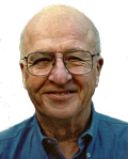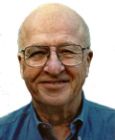
Freudian Psychology
Freud on Obama
Is the secret to the Obama presidency his father?
Posted July 14, 2011
How can one not be fascinated by the psychological issues involved in the Obama presidency? Freud, if he were alive, would surely comment. And he would find an oedipal clue to the predicament President Obama finds himself in with his adamant opponents cheerily threatening financial disaster for America.
I posted on this subject once before, in August of 2009. I was drawing on the idea of an "identity theme" that pervades our behaviors, an idea I developed in The I and Being Human (Transaction, 2011) and linked to procedural memory in Literature and the Brain (PsyArt, 2009). Put in link. I suggested that President and pre-President Obama consistently acted out a theme in two parts. One, I bring two conflicting parties together. Two, I stand above and apart from the two opponents. We are seeing him play out his theme currently in the debate about the debt ceiling--he talks as though he were not connected to either battling party--and one can follow this pattern throughout his career.

Obama's father
If I look at the trajectory of that career, I see a more tragic path. The President was elected by a healthy majority. The election of a black man to the American presidency was a triumph for all concerned. Campaigning, he had shown himself a gifted orator speaker who had a commanding ability to create enthusiasm in his supporters. After the election, his party controlled both houses of Congress with a near filibuster-proof majority in the Senate. President Obama came in with big political capital, both popularity and power. What happened?
To my eye, once he had won the election, it was all downhill. Partisans can point to some successes like health care reform, dealing with the financial crisis and the automobile industry, some investment in public transportation and alternative energy. But even the most conspicuous of these seem to me riddled with compromises, far less forceful than Franklin Roosevelt's decisive dealing with an even more severe financial crisis and a safety network for the poor and elderly. The inspiring orator of the campaign has not persuaded the American public of their--or his--value. The election of 2010--the "shellacking" as he called it-- saw Obama's party lose the House and many governorships and legislatures. What happened to all the promise people felt in November 2008?
It seems, after the great success of his election, that Obama somehow lost the gifts that had enabled him to win. Freud wrote about this pattern in 1926 in "Those Wrecked by Success." Drawing on both clinical and literary examples (Macbeth, Rosmersholm), Freud concluded that in such cases a forbidden wish is fulfilled. Guilt associated with the wish was held off as long as it remained a mere wish. But if and when reality grants the wish, the wish "which has hitherto been thought little of and tolerated [is turned] into a dreaded opponent."
Is it possible that Obama partly created that dreaded opponent? I am thinking of the summer of 2009 when the President was vacationing on Martha's Vineyard. "Death panels," "Obamacare," "socialism," and the Tea Party all erupted. Obama said little while all this solidified into rock-hard Republican opposition. Could the inspiring speaker have mobilized his own forces? Not with that identity theme and not, perhaps, after the success of 2008.
Ten years after "Those Wrecked by Success" Freud returned to the topic in "A Disturbance of Memory on the Acropolis." Visiting Athens, he suddenly felt that what he was seeing was "too good to be true." Analyzing himself, he concluded that the feeling of derealization [Entfremdungsgef̈ühl] defended against his achieving something impossible for his ill-educated businessman father. "To excel one's father was still something forbidden."
Interestingly, Sally Jacobs of the Boston Globe has recently published The Other Barack: The Bold and Reckless Life of President Obama's Father. He was a drinker and womanizer who was also brilliant enough to have worked his way from a Kenyan village and tyrannical father (Obama's grandfather) to an ABD from Harvard. (It was typical of the man that he always claimed it was a Ph.D.)
In November 2008, Obama Jr. surely surpassed anything the charismatic but abusive Obama Sr., a drunk and a failure, could have dreamed of. In the 1926 paper, Freud wrote, "The forces of conscience which induce illness in consequence of success, instead of, as normally, in consequence of frustration, are closely connected with the . . . the relation to father and mother." You arrive at an identity theme by observing patterns in behaviors, and I think Obama's identity theme explains a lot. Explaining "those wrecked by success," though, involves Obama's feelings about his father. About those we can only speculate. Perhaps success in outdoing a father is the secret behind the sad diminishments of the immensely promising Obama presidency.
But we will never know for sure, will we? The "great man theory" of history says that great events derive from the character of the leaders. Balanced against that are theories of economic or cultural determinism--or simply chance. Obama's presidency seems poised between the two.
Items I've referred to:
Freud, S. (1916). Those wrecked by success. Standard Edition of the Complete Psychological Works of Sigmund Freud. 14, 316-331.
Freud, S. (1936). A disturbance of memory on the Acropolis: An open letter to Romain Rolland on the occasion of his seventieth birthday. Standard Edition of the Complete Psychological Works of Sigmund Freud. 22:239-48.
Holland, N. (1986). The I. Yale UP.
Holland, N. (2009). Literature and the Brain. PsyArt Foundation.
Holland, N. (2011). The I and Being Human. Transaction.
Jacobs, Sally H. (2011). The Bold and Reckless Life of President Obama's Father. Public Affairs.
And I want to mention another PT blog, by Mary C. Lamia, The Downside of Success: Guilt or Shame?, published on June 12, 2011, that also discusses these two Freud papers.



